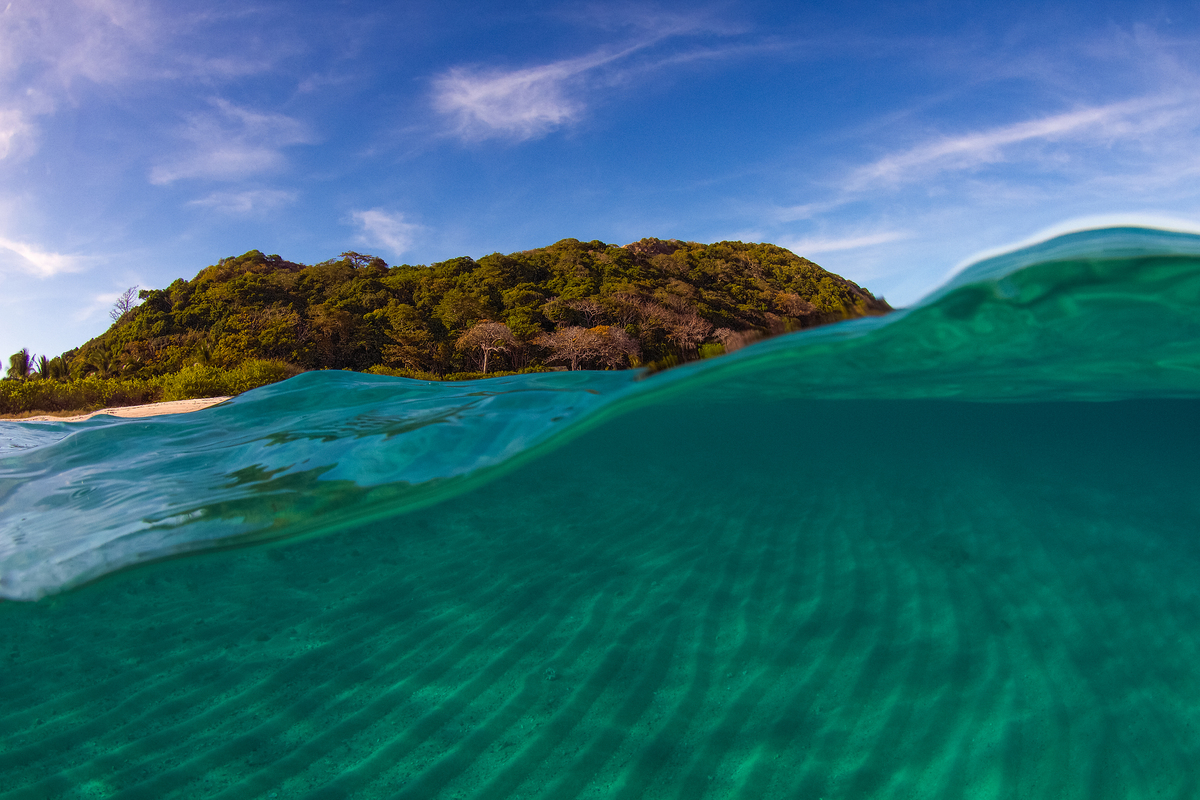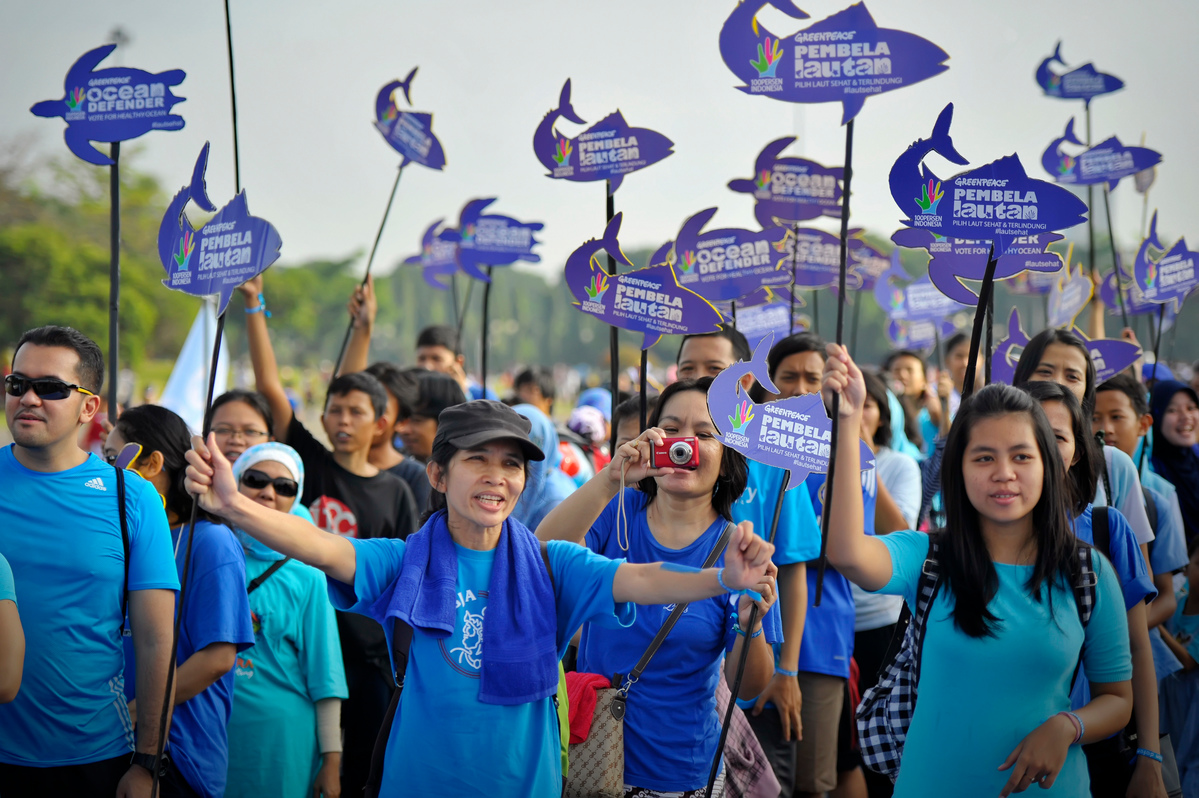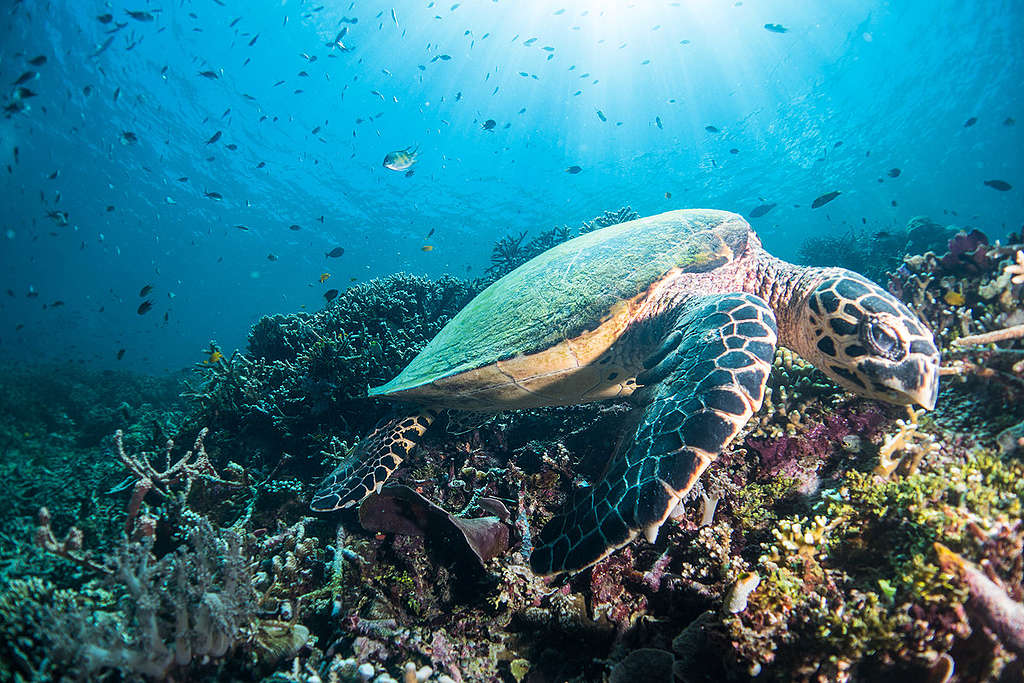
A split-shot of the waters above and below Coron, Palawan.
A blue planet
Life on earth would not exist without the vast blue waters that cover more than 70% of the planet.
The oceans provide us the oxygen we breathe, the fish we eat, even life-giving medicine sourced from the deep.
Aside from sustenance, the oceans protects us from the harsh elements. Mangroves and coral reefs shield us from strong winds and waves.
The waters are also a place of awesome beauty and home to more than 80% of the world’s biodiversity. This includes beloved sea creatures like whales, dolphins, sharks, dugong, turtles and manta-rays. According to the World Register of Marine Species, there are around 240,470 known species, but this is believed to be just a small fraction of the species that exist, with new marine life being discovered everyday!
The oceans are also a source of livelihood to millions. In 2016, the United Nations – Food and Agriculture Organization (UN-FAO) estimated that about 59.6 million people worked as fishers and fish farmers, much of whom are from Southeast Asia.
Simply put, the ocean is a place of wonder and delight.

An underwater view of a skipjack tuna purse seine fishery operation underway between the Philippine purse seiner ‘Vergene’ and the Philippine fish carrier/supply boat ‘Gene-2’ in the international waters of high seas pocket No1. Purse seiners use fish aggregation devices, or FADs, to set net around, which are a highly destructive method of fishing.
Oceans in peril
Unfortunately, the oceans are not what they used to be. The news nowadays paints a grim picture of the state of global oceans.
Everywhere, there are cases of pollution— from plastic to oil spills— choking the life out of sea creatures who are silently helpless. Time and again, we find birds, dolphins, and turtles washed ashore in the beaches of the Philippines, Thailand and Indonesia, usually dying because of ingesting plastic wastes (big and small) that are being dumped in the ocean.
Fish is slowly disappearing because of unsustainable fishing practices by an industry that is always hungry for profit. Roughly 90% of the fish in our ocean have already been fished by big companies that are engaged in illegal and destructive fishing practices that not only endanger the marine environment and other sea creatures, but also endanger thousands of fish workers in the region. Some have died and many have experienced inhumane treatment and unfair labour conditions onboard.

Greenpeace activists and supporters march from Bunderan HI to Bundaran Monas in Jakarta to raise public awareness in saving Indonesian’s oceans. Greenpeace is also asking the public to sign a petition, calling for the Indonesian president to commit to 100% healthy oceans.
Wanted: Ocean Defenders
The oceans give us so much without asking anything in return. But the truth is, it needs our help now more than ever. But what exactly can we do to help protect and restore the oceans back to its healthy, pristine state?
Here are 5 ways YOU can help.
- Read the news and dive deeper into oceans issues
There are so many news and information out there and it’s good to educate yourself and others on the beauty and threats to our oceans.
Find out what is happening in the marine environment right now- celebrate the good (share the video of that rare rainbow ‘blanket’ octopus recently sighted in the Philippines), and the bad (share that investigative report on human slavery in the high seas).
- #BreakFreeFromPlastic
Plastic ain’t fantastic. It’s a serious pollutant (it’s a byproduct of fossil fuels) and endangers marine animals and other important wildlife.
Be an example to friends and family and say no to single-use plastics (bags, straws, cutlery, etc.) now and forever.
- Be a smart seafood consumer
Love seafood? Whether you prefer it fresh or from the can, it’s good to be aware if the product you are buying was caught sustainably and ethically. This ensures that companies and brands were not involved in any ‘fish crimes’ such as illegal and unsustainable fishing practices that harm the marine environment or even endanger fishermen and labourers.
Check out the latest Greenpeace tuna cannery ranking in Southeast Asia, see if your favourite brand passed the green criteria.
- Initiate and support an oceans education program for the youth
It is important to start them young and to make them appreciate the importance of saving the marine environment early on. So schools need to allocate significant resources, like time and budget, to set up an oceans education program for their students, even their parents.
High school and university students can be molded into future leaders. By inspiring and motivating them to protect our oceans, we can hope to achieve systematic changes needed to save the environment as a whole.
- Ask your government to support the UN treaty to protect global oceans
There’s a new treaty in town to save our seas from further degradation and abuse.
Governments have started work on a UN Ocean Treaty that will hopefully protect a third of the oceans and declare it off-limits to fishing, mining and other destructive industries.
Greenpeace started an online petition to put the pressure on world leaders to set things right and agree on stronger resolutions to protect global oceans for present and future generations.
The world needs people committed to protect the oceans and keep it healthy, safe, and full of life.
Show your love for the deep blue, not just during Oceans Month, but with every breath you take. After all, we owe our very existence to our oceans.
Arifsyah Nasution is the Regional Oceans campaigner in Greenpeace Southeast Asia. He is a delegate to the UN Ocean Treaty, working to restore the balance in our oceans.

The threats facing our oceans are getting more urgent, find out how you can make a difference
